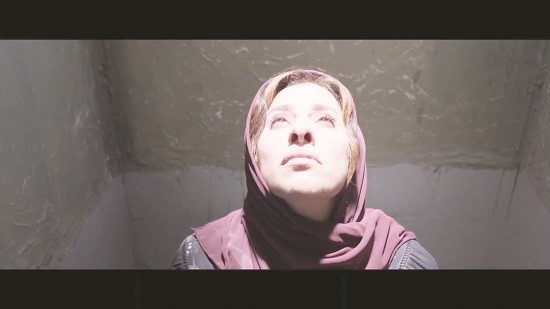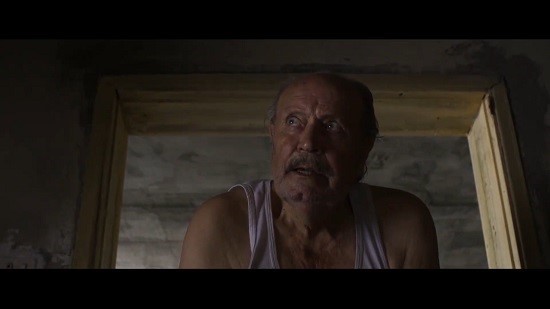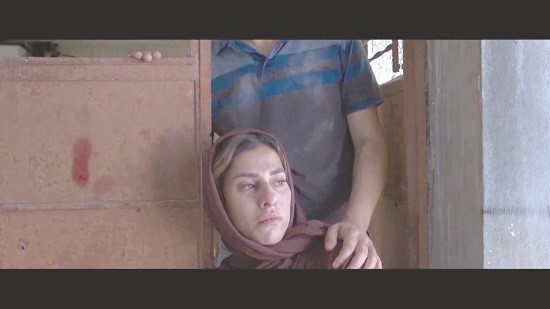The finest
quality of the feature film “
All This Victory”, screened during the Lebanese
film days organized by the
Royal film Commission, is that it tells us about an
armed conflict from the perspective of civilians.
اضافة اعلان
In the
summer of 2006 a war broke out between Lebanese Hezbollah and the Israeli army.
Worried, Marwan Hamdan travels to devastated southern Lebanon in the hope of
finding his father Abu Nasser. He finds himself trapped in an isolated house
whose upper floors are occupied by Israeli soldiers.
They did not
want war. They undergo it. They hear it above their heads, cross it at the
corner of the street, experience its bitterness through all their senses.
Marwan
(Karam Ghossein) is a man in his thirties who rushes to a southern town that
has become a heap of ruins in the hope of finding his father. There he meets
two friends of the father who bring him home. Due to a short truce, all is
calm. Then, without warning, the conflict resumes. Bullets are whistling
everywhere. The three men, who will soon be joined by a couple, will spend the
next three days confined to the first floor of the house.
These
civilians are condemned not to make noise, because the danger is ready and
lurking. There is nothing more to eat, soon nothing to drink. When a water pipe
running alongside a wall bursts, they rush to lick the concrete.
 (Photo: Youtube)
(Photo: Youtube)
The great
performance helps convey the feelings of terror experienced by Marwan and his
companions. More than the words, it is the facial and bodily expressions, the
immobility, which translate the protagonists’ dismay here.
The film
also explores themes associated with each conflict and disaster: To leave or to
stay? To look for relatives or hope for a future reunion? We see it here
through the story of Marwan, but also of his wife Rana (
Flavia Juska Bechara),
who remained in Beirut. The two complementary stories would have benefited from
being a little better linked.
While the
protagonists, who ignore the presence of their “enemies” above, wonder what to
do, the Israeli patrol moves upstairs; a clear metaphor of dominant and
dominated, and of Israeli-Arab relations.
Begins a
game of cats and mice under extreme tension. A closed session that takes place
largely in silence since the villagers must avoid any noise that would denounce
their presence.
 (Photo: Youtube)
(Photo: Youtube)
Failing to
put flesh on his characters (only a few elements of their past resurface during
brief whispered conversations), Ahmad Ghossein will rely on the language of
cinema to translate their visceral terror: camera carried and close by
alternates with well-composed long shots or simple tracking shots which can
become extremely significant.
But more
importantly, he relies on the fear of what is invisible to illustrate the
anguish of the five heroes. The sounds of detonations and bursts of bullets are
always out of focus, as are Israeli soldiers. We can hear them walking or
talking, we can guess their silhouettes, nothing more
Eternal
conflict
In his film,
director Ahmad Ghossein offers a particularly ingenious staging, stuffed as it
is with good flashes. Lingering on the retina, among other things, are the
opening sequence, where a traveling magician makes a dove emerge from a
crumpled Lebanese flag, or even the bullet hole on the ceiling, which becomes
like a keyhole through which the captives observe the jailers who ignore their
presence.
Ghossein
never shows the Israeli soldiers, who can only be guessed by sounds and
shadows. The filmmaker is also adept at forging an intimate atmosphere and one
immediately feels part of Marwan’s quest and then of Marwan’s precarious
situation.
 (Photo: Youtube)
(Photo: Youtube)
The
performers are extremely credible; special mention goes to
Boutros Rouhana and
Adel Chahine, old friends who like to spend their time together. Elders of the
gang, they allude to bombings in the 1980s and 1990s, a reminder of the perpetual
nature of war.
Above all,
the film offers a brilliant political metaphor by symbolically placing the
Israeli army upstairs and the Lebanese downstairs, suggesting that the latter
are not only forced to make themselves small if they hope to survive, but that
in any possible confrontation they would be below par. Does this not apply to
all major conflicts?
But more
importantly, Ghossein relies on the fear of what is invisible to illustrate the
anguish of the gang of five. The sounds of detonations and bursts of bullets
are always out of focus, as are Israeli soldiers. We can hear them walking or
talking, we can guess their silhouette, nothing more.
Inspired by
true events, the film was crowned three awards in 2019 at the 34th
International Critics’ Week in Venice, an independent section of the Venice
Film Festival. It was also nominated for the Golden Pyramid Award for Best Film
at
Cairo International Film Festival.
Read more Entertainment





